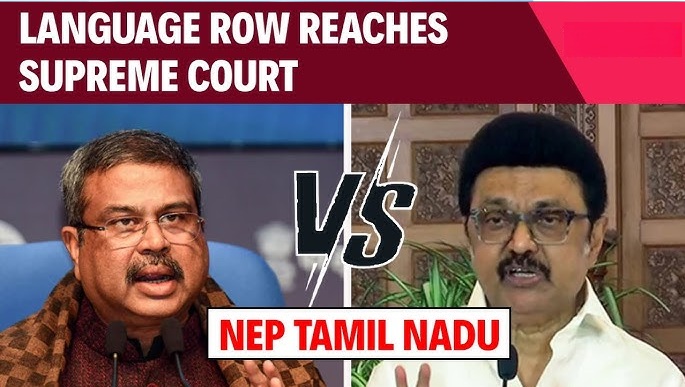Can’t use language row as leverage: Tamil Nadu’s plea in top court over NEP funds
News Mania Desk / Piyal Chatterjee / 21th May 2025

The Tamil Nadu government filed a petition with the Supreme Court, claiming that the Central government is unlawfully retaining more than Rs 2,291 crore in education financing. The state alleged that the Centre was applying financial pressure on the States to adopt the National Education Policy (NEP) 2020 and associated initiatives like PM SHRI Schools.
The Tamil Nadu government has initiated a case directly in the Supreme Court under Article 131 of the Indian Constitution against the Central government for delaying education funds designated for the state. Article 131 permits a state government to legally contest the Central government in cases concerning legal or constitutional rights.
The government is requesting the prompt disbursement of Rs 2,291.30 crore from the Samagra Shiksha Scheme (SSS), aimed at enhancing school education, especially for disadvantaged children.
This comprises Rs 2,151.59 crore, representing the Centre’s 60% portion of the approved funds for FY 2024–25, along with interest at a rate of 6% annually from May 1, 2025, until the payment is completed.
The Samagra Shiksha Scheme is a central government initiative designed to promote inclusive and equitable quality education. Tamil Nadu states that the Project Approval Board (PAB) approved the State’s proposal on February 16, 2024, confirming complete adherence to scheme guidelines. However, the state stated in its petition that the Centre “has not provided any funds” as of May 21, 2025.
Tamil Nadu claimed that the Centre was unlawfully utilizing funds to coerce the state into agreeing to the NEP 2020 and the PM SHRI Schools Scheme, aimed at demonstrating NEP execution via model schools. Tamil Nadu firmly rejects the NEP, especially its three-language policy, which incorporates Hindi — a matter of political sensitivity in the Tamil-speaking region.
Tamil Nadu’s position is bolstered by an earlier Supreme Court decision that denied a plea to compel Tamil Nadu to implement the NEP 2020, which includes its three-language policy. The Court indicated it cannot direct a state to establish a policy under Article 32 of the Constitution, as this article is intended to safeguard fundamental rights rather than enforce state policy choices.
Tamil Nadu has now requested the Centre to refrain from associating unrelated policies with the allocation of education funds and to comply with its legal obligations under the Right to Education Act (RTE), 2009. The Tamil Nadu government stated that it officially requested the Centre on July 6, 2024, to amend certain clauses in the PM SHRI memorandum of understanding (MoU) that mandate the execution of NEP provisions throughout the State. No solution ensued.
The State government contended that NEP and PM SHRI were policy papers, not legislation. Therefore, they were not obligatory for any state. It also claimed that withholding funds for failing to implement these policies is unconstitutional, arbitrary, and contravenes federalism. The state further asserted that the Centre’s actions violated its duties under the Right to Education Act, 2009, which requires the Union to fund 60% of education-related expenses through initiatives like Samagra Shiksha.
Tamil Nadu has additionally requested the Court to nullify the Central government’s letters from 2024, dated February 23 and March 7, which purportedly link fund disbursement to NEP and PM SHRI compliance, labeling them as invalid.






